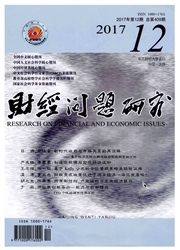

 中文摘要:
中文摘要:
随着中国经济的发展,贫富差距不断加大的现状已经成为社会关注的焦点。国有企业由于其员工相对较高的工资与福利待遇,更被认为是拉大贫富差距、造成社会不公的主要原因。这些争议主要集中在国有企业运行缺乏效率且利用垄断力量获取超额收入,有违社会公平。那么与私有制相比,公有制的分配制度是不公平的吗?事实上,很多对公有制分配制度的歪曲认识是建立在对分配制度错误的认识上的。分配本质上是利用生产资料的所有权对剩余索取权的争夺,公有制的分配制度具备整体性和模糊性特征,完善的公有制分配制度并不影响效率且远比私有制公平。
 英文摘要:
英文摘要:
With the development of China's economy, status of the widening wealth gap has been the focus of social attention. State-owned enterprises is considered to be main causes of the social injustice by widen the gap between rich and poor because of their employee' good wages and benefits. These disputes are mainly concentrated in the state-owned enterprises inefficiency operation and obtain the excess revenue with monopoly power, which contrary to social justice. Then compared with private ownership, is the public ownership distribution system not fair? In fact, many distorted understanding to the public ownership dis- tribution system is based on the misknowledge of distribution system. Distribution is essentially using the ownership of means of production to obtain the residual claimant. The distribution system of public ownership has the characteristics of integrity and fuzziness. The perfect distribution system of public ownership would not affect the efficiency of state-owned enterprises, and it is more equitable than the distribution of private ownership.
 同期刊论文项目
同期刊论文项目
 同项目期刊论文
同项目期刊论文
 期刊信息
期刊信息
